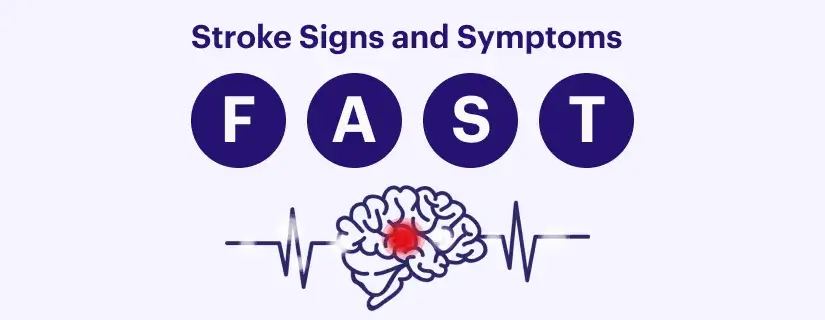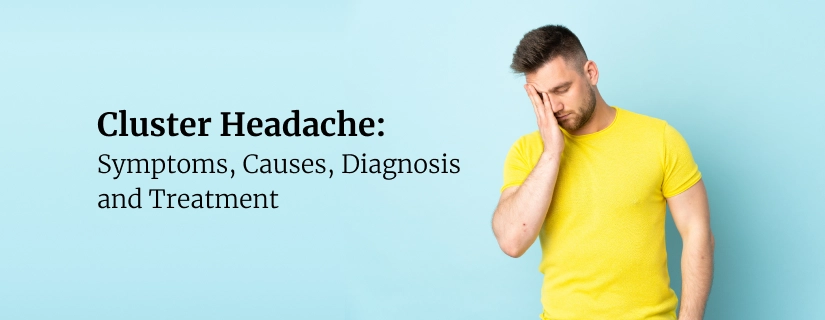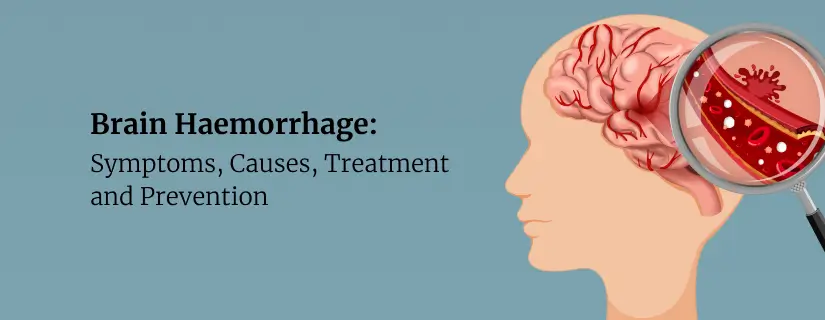-
Doctors
-
Specialities & Treatments
Centre of Excellence
Specialties
Treatments and Procedures
Hospitals & Directions HyderabadCARE Hospitals, Banjara Hills CARE Outpatient Centre, Banjara Hills CARE Hospitals, HITEC City CARE Hospitals, Nampally Gurunanak CARE Hospitals, Musheerabad CARE Hospitals Outpatient Centre, HITEC City CARE Hospitals, Malakpet
HyderabadCARE Hospitals, Banjara Hills CARE Outpatient Centre, Banjara Hills CARE Hospitals, HITEC City CARE Hospitals, Nampally Gurunanak CARE Hospitals, Musheerabad CARE Hospitals Outpatient Centre, HITEC City CARE Hospitals, Malakpet Raipur
Raipur
 Bhubaneswar
Bhubaneswar Visakhapatnam
Visakhapatnam
 Nagpur
Nagpur
 Indore
Indore
 Chh. Sambhajinagar
Chh. SambhajinagarClinics & Medical Centers
Book an AppointmentContact Us
Online Lab Reports
Book an Appointment
Consult Super-Specialist Doctors at CARE Hospitals
Flu Headache: Symptoms, Causes and Treatment for Relief
Updated on 18 November 2024

Flu headaches can be incredibly debilitating, often causing severe pain and discomfort alongside other flu symptoms. These headaches are common complaints during flu season, leaving many people searching for effective flu headache remedies and relief. Understanding the nature of flu headaches and how to manage them is crucial for those looking to alleviate their symptoms and get back to feeling their best.
Let's explore the world of flu headaches and their causes, symptoms, and treatment options. We'll also discover effective tips to relieve flu headaches and learn prevention strategies to reduce the likelihood of experiencing these painful episodes.

What are Flu Headaches?
Flu headaches are a common symptom of influenza, often causing significant discomfort alongside other flu symptoms. These headaches can be persistent and severe, making them a notable aspect of the illness. Flu headaches are considered secondary headaches, meaning they result from the underlying viral infection rather than a primary condition on their own. However, if a headache persists after other flu symptoms have resolved, it may indicate a different underlying condition or complication that requires medical attention.
Causes of Flu Headaches
The primary cause of flu headaches is the body's immune response to the viral infection. When the influenza virus enters the body, it triggers the release of cytokines, infection-fighting molecules produced by the immune system. While these cytokines play a crucial role in combating the virus, they can also lead to inflammation and contribute to headaches.
The inflammation caused by cytokines can affect various body parts, including the mucous membranes lining the nasal and sinus cavities. This inflammation results in increased pressure around the eyes and face, potentially leading to a magnified headache. The inflammation & swelling of the sinus cavities to accommodate increased mucus production can cause a persistent pain sensation, which is characteristic of flu headaches.
Dehydration is another factor that can exacerbate flu headaches. As the body fights the infection, it loses more fluids than usual. Insufficient fluid intake translates into dehydration, which is widely recognised as a potential headache trigger.
Symptoms of Flu Headaches
Flu headaches are often accompanied by other flu symptoms that come on suddenly and can be quite severe. The following are some common flu headache symptoms:
- Intense and persistent headache, causing significant discomfort.
- Constant pressure or throbbing sensation that refuses to subside.
- Sensitivity to light, sound, and smell
- In addition to the headache, individuals with the flu may experience a sudden high temperature, body aches, extreme fatigue, and a dry cough.
- Other common symptoms include a sore throat, difficulty sleeping, loss of appetite, and, in some cases, nausea, vomiting, and abdominal pain.
While flu headaches typically improve as other symptoms subside, monitoring their progression is crucial. If a severe headache with flu persists or worsens after other symptoms have resolved, it may indicate a more serious underlying complication that requires medical attention.
Treatment for Flu Headaches
Treating flu headaches focuses on symptom management and supporting the body's natural healing processes to relieve flu headaches and associated discomfort.
- Over-the-counter pain relievers help relieve flu headaches, reduce fever and alleviate aches & pains associated with the flu.
- Staying well-hydrated is crucial for relief from flu headaches. Drinking lukewarm water, herbal teas, and broths can combat dehydration and provide soothing warmness to inflamed mucosa.
- Rest is equally important, as it allows the body to focus its energy on fighting the infection.
- Doctors may sometimes prescribe antiviral medications for severe flu cases or individuals at high risk of complications. These medicines can shorten the duration of the illness and help prevent serious complications.
When to See a Doctor
While individuals can manage most cases of flu headaches at home, there are situations where medical attention becomes necessary. Contact your doctor:
- If symptoms continue or worsen after seven days
- If a severe headache with flu continues to intensify or accompanies other concerning symptoms, such as difficulty breathing, chest pain, persistent dizziness, seizures, or severe weakness
- In children, additional warning signs include bluish lips or face, dehydration, and fast breathing.
- Individuals at high risk of serious flu-related complications include individuals aged 65 or over, pregnant women, and those with long-term medical conditions such as diabetes or heart problems.
Prevention
Preventing flu headaches involves limiting the transmission of the influenza virus. The measures to prevent flu are similar to those used for COVID-19 and other respiratory infections, including:
- Regular handwashing with warm water and soap is crucial, as it helps remove germs that can live on hands for up to 24 hours.
- Covering the mouth & nose when sneezing or coughing is the best way to prevent the spread of flu. If a tissue is unavailable, it is advisable to cough or sneeze into the bend of the elbow rather than into the hand. Used tissues should be disposed of quickly to minimise the risk of transmission.
- Avoiding close contact with others, especially when experiencing flu symptoms, is essential.
- Individuals with a high temperature or those feeling unwell should stay at home & avoid contact with other people to reduce the risk of spreading the virus.
- One of the most effective ways to prevent flu and associated headaches is through vaccination. Flu vaccines are safe and effective and protect people who are at risk of flu & its complications.
For those seeking flu headache relief, these preventive measures can significantly diminish the likelihood of contracting the virus and experiencing severe headaches with flu.
How to Relieve a Flu Headache
When experiencing a flu headache, several effective remedies can provide relief. These involve:
- Over-the-counter pain relievers help lower body temperature and alleviate aches and pains associated with the flu. These medications can help manage the discomfort of a severe headache with flu, making the symptoms more bearable.
- Applying a warm compress to the forehead & nose can be highly effective for those seeking a non-medicinal flu headache remedy. The warmth helps relax tense muscles and improve blood circulation, reducing the intensity of the headache and providing soothing relief for sinus discomfort.
- Parents caring for children with flu symptoms should carefully measure the medicine dosage suitable for the child's age and weight. If there's any uncertainty, consulting a doctor is advisable to determine the most appropriate flu headache cure for the child.
- It's important to note that while these remedies can help relieve flu headache symptoms, they should be used in conjunction with other flu management strategies, such as rest and hydration.
Combining these approaches allows individuals to find more comprehensive flu headache relief and support their body's natural healing processes.
Conclusion
Flu headaches can be a real pain, but there are plenty of ways to handle them. From over-the-counter pain relievers to warm compresses, these remedies can help ease the discomfort. Staying well-hydrated & getting plenty of rest is crucial to support your body's natural healing process. Remember, prevention is key, so taking steps like avoiding contact with an infected person, regular handwashing, and getting your annual flu shot can go a long way in avoiding these nasty headaches in the first place.
Don't hesitate to contact a doctor if your symptoms persist after a few days or worsen. They can provide personalised advice and, if needed, recommend antiviral medicines to shorten the duration of your illness. By understanding the reasons, symptoms, and treatment options for flu headaches, you can better tackle them head-on and return to feeling like yourself sooner.
FAQs
1. What does a flu headache feel like?
A flu headache often feels like a sudden, intense pressure or throbbing sensation that refuses to subside. It can be accompanied by sensitivity to light, sound, and smell, making the experience even more uncomfortable. The pain is typically more severe than a regular headache and may be exacerbated by the inflammation of the nasal and sinus cavities.
2. How can I sleep with a flu headache?
Getting proper rest is crucial when dealing with a flu headache. To improve sleep quality:
- Prop yourself up with pillows to create a wedge. This elevated position helps reduce sinus pressure and prevents postnasal drip, which can trigger coughing and sore throat.
- Use a humidifier or vaporiser to moisturise the air, helping to soothe dried-out nasal passages and loosen mucus.
- Take a warm shower before bed to relieve congestion and promote relaxation.
- Drink or eat something warm, such as herbal tea or soup, to help clear airways and soothe a sore throat.
- If sleep remains elusive, try engaging in calming activities like listening to soft music or reading before returning to bed when feeling sleepier.
3. What is the remedy for flu headaches?
To relieve flu headache and associated symptoms, consider the following remedies:
- Over-the-counter pain relievers and cold and flu medicines
- Drink plenty of water, herbal teas, and clear broths to combat dehydration
- Avoid strenuous activities & get plenty of rest
- Apply a warm compress on your forehead and nose to help alleviate headache pain and sinus discomfort.
- Avoid alcohol consumption, as it can interfere with sleep quality and may react badly with cold or flu medicines.
ENQUIRY FORM
SELECT CATEGORIES
-
Neurosciences (16)
-
Neurology (37)
-
Neurosurgery (14)
-
Orthopaedics (48)
-
Oncology (33)
-
Obstetrics and gynecology (51)
-
Pulmonology (23)
-
Urology (20)
-
Nephrology (13)
-
Psychiatry (7)
-
Dietetics and Nutrition (111)
-
General Medicine (63)
-
Cardiac Sciences (30)
-
Vascular & Endovascular Surgery and Interventional Radiology (10)
-
Gastroenterology (46)
-
Endocrinology (23)
-
Plastic Surgery (10)
-
Critical Care Medicine (5)
-
COVID-19 (16)
-
Dermatology (16)
-
Emergency Care (1)
-
Ophthalmology (4)
-
Pediatrics (14)
-
Laparoscopic and Bariatric Surgery (8)
-
ENT (15)
-
Kidney Transplant (1)
-
Liver Transplantation and Hepatobiliary Surgery (5)
-
General Surgery (3)
-
Internal Medicine (5)
-
Medicine Information
Headache Behind Eye: Causes, Diagnosis and Treatment
Concussion: Symptoms, Causes and Treatment
YOU MAY ALSO LIKE
RECENT BLOGS
-

Direct Anterior Approach in Total Hip Replacement: Advantages and Challenges
10 April 2025
Read More
-

Zinc Deficiency: Signs and Symptoms, Causes, Treatment
9 April 2025
Read More
-

Chest Pain When Coughing: Causes, Treatment and Home Remedies
9 April 2025
Read More
-

12 Health Benefits of Eating Mushrooms
8 April 2025
Read More
-

7 Health Benefits of Blood Donation You Should Know About
8 April 2025
Read More
-

Implantation Bleeding Vs Periods: Know the Difference
28 February 2025
Read More
-

Bloating During Ovulation: Symptoms, Causes and Remedies
28 February 2025
Read More
-

Itching During Dengue: Causes, Treatment and Home Remedies
18 February 2025
Read More
Have a Question?
If you cannot find answers to your queries, please fill out the enquiry form or call the number below. We will contact you shortly.




































.webp)